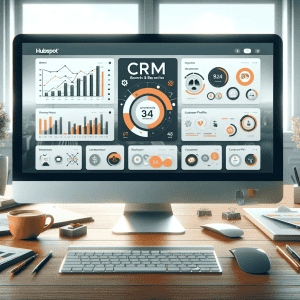A Comparative Look
Before CRM: The Challenges
Before the adoption of CRM systems, businesses faced numerous challenges in managing customer data, tracking interactions, and personalizing customer experiences. Information was often scattered across emails, notes, and spreadsheets, making it difficult to access and analyze. Sales teams struggled to follow up on leads and opportunities in a timely manner, while marketing efforts were broad and less targeted
After CRM: The HubSpot Revolution
Enter HubSpot, a CRM platform designed to address these challenges head-on. HubSpot provides a centralized platform for managing all aspects of customer relationships, from initial contact to post-sale support. It automates and streamlines tasks, offers deep insights into customer behavior, and facilitates personalized marketing and sales strategies
Comparative View: Life Without vs With HubSpot CRM
Difficult to track and measure
Comparative (Mobile View): Life Without vs With HubSpot CRM
Feature/CRM
The Bottom Line
Transitioning from a life without CRM to one with HubSpot CRM represents a fundamental shift in how businesses operate. With HubSpot, companies can expect improved data management, deeper customer insights, and more efficient operations across the board. Sales and marketing efforts become more targeted and effective, leading to increased customer satisfaction and loyalty. Moreover, the ability to easily measure ROI helps businesses make data-driven decisions for sustained growth
In conclusion, while the challenges of managing customer relationships without a CRM can be substantial, the benefits of adopting a system like HubSpot are clear. By streamlining processes and enhancing customer interactions, HubSpot CRM not only boosts revenues but also transforms the overall business landscape




